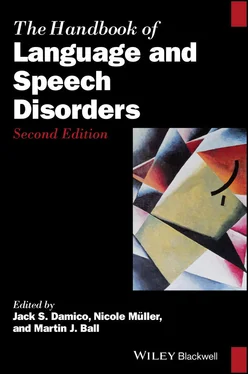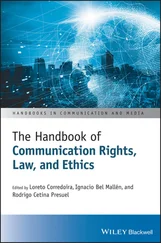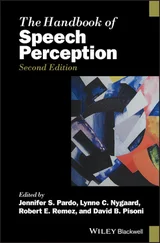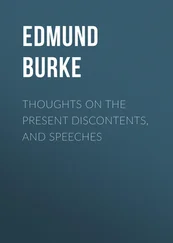Adam Jacks, PhD, CCC‐SLP, is Associate Professor in the Division of Speech and Hearing Sciences, Department of Allied Health Sciences, University of North Carolina School of Medicine. He holds PhD and MA degrees from the University of Texas at Austin and a BA from Duke University in Durham, North Carolina. He teaches courses on speech science and motor speech disorders. His research focuses on understanding the link between neuropathology and behavioral manifestations of neurological speech disorders, investigating novel interventions for people with aphasia and apraxia of speech, and identifying factors associated with improved quality of life with aphasia.
Alan G. Kamhiis a Professor of Communication Sciences and Disorders at UNC‐Greensboro Department of Communication Sciences and Disorders at the University of North Carolina‐Greensboro. His early research focused on linguistic and cognitive abilities of children with specific language impairments (SLI) and mental handicaps. Later research focused on language‐learning disabilities, culminating in a book co‐edited with Hugh Catts, on language and reading disabilities. The third edition of this book was published in 2012. Recent articles have considered how to balance certainty and uncertainty in clinical practice, what SLPs need to know about auditory processing disorders, how to improve clinical practices for children with language and learning disorders, and how to assess and treat reading comprehension problems.
Natalie Kippinis a certified practicing speech‐language pathologist and is currently completing a PhD with Telethon Kids Institute and Curtin University in Perth, Western Australia. She is a Member of Speech Pathology Australia and the Public Health Association of Australia. Natalie’s clinical and research areas include the oral and written communication skills of adolescents who are involved with youth justice, including those who have been exposed to alcohol prenatally. Natalie is the inaugural Chair of the justice‐related child health research interest group at Telethon Kids Institute. She also has a background in health promotion and has worked as a youth custodial officer in an Australian youth detention centre.
Karen Lêis a speech‐language pathologist in the VA Connecticut Healthcare System where she developed the cognitive‐communication rehabilitation program, and serves on the interdisciplinary Polytrauma Support Clinic Team. She is a member of the Student Veteran Community of Practice Workgroup within the VA. Her research interests include the study of discourse following traumatic brain injury, the development of sensitive and reliable discourse measures for clinical use, discourse intervention, and the impact of mental health and neurologic comorbidities on discourse ability. She holds a PhD from the Department of Speech, Language, and Hearing Sciences at the University of Connecticut.
Suze Leitãois an Associate Professor of Speech Pathology at Curtin University, Western Australia, Director of Graduate Research, and a clinical speech pathologist. She is a Life Member and Fellow of Speech Pathology Australia, recently completing nine years as the Chair of the National Ethics Board of SPA. She is on the Board of the International Journal of Speech‐Language Pathology and Child Language Teaching and Therapy . Her research interests encompass theory, assessment, and intervention for children and young people with language disorder and developmental language disorder. She has published extensively in these areas with her research group: Language and Literacy in Young People. She grew up in Europe, trained and lived in the UK, and currently lives in Fremantle, Western Australia.
Zaneta Mokis a lecturer in speech pathology at Australian Catholic University. She also works in a quality and research capacity at a major Australian hospital service. Her research interests include aphasia and dementia, and speech pathology in culturally and linguistically diverse communities. She is especially interested in topics related to social interaction and functional discourse. Her recent publications include papers on outcome measures for communication partner training, and repair mechanisms in conversations involving people with dementia.
David Jackson Morrisis an Associate Professor at the Department of Nordic Studies and Linguistics, University of Copenhagen, Denmark. He is originally from Australia and is a graduate of Griffith University and the University of Queensland. He holds a PhD from the University of Copenhagen and has also held positions at Lund University, Sweden. Prior to postgraduate studies in Scandinavia, David worked in the diagnostic instrument and hearing aid industries. With a diverse network of collaborators he investigates receptive communication, particularly electrophysiological measures of speech perception, cochlear implant listening, phonemic restoration, and clinical issues involved in resolving functional hearing loss. As an educator David lectures in a combined Speech Pathology and Audiology degree program and convenes a graduate course in electroencephalography methods.
Richard J. Morris, PhD, is a Professor in the School of Communication Science and Disorders at Florida State University. Dr Morris is the director of the Special Summer Program in Communication Disorders at the FSU London Centre. He has taught courses on the anatomy and physiology of speech and hearing, the acoustics of speech, critical thinking and communication disorders, voice disorders, ethical research practice, and acoustics of the singing voice. His main research interests are acoustic and physiological phonetics, and the assessment and teaching of critical thinking skills. He has presented and published papers on age‐related changes in speech and voice, speech acoustics, the effects of neuromuscular electrical stimulation on voice, the acoustics and physiology of the classically trained singing voice, acoustics of choral singing, the assessment of thinking skills, and the teaching of thinking skills.
Jennifer Mozeikois a licensed speech‐language pathologist, Assistant Professor, and researcher directing the Aphasia Rehab Lab at the University of Connecticut. After earning her BA, she worked at the Harvard School of Public Health, spent a year teaching English in Hong Kong, and then returned to Boston where she worked in e‐commerce for several years before pursuing her interest in language disorders following brain injury. She received her MA and PhD at the University of Connecticut where she is now a faculty member. Her research is focused on improving treatment and the quality of life of people with acquired brain injury.
Nicole Mülleris Professor and Head of the Department of Speech and Hearing Sciences, University College Cork, Ireland and Visiting Professor at Linköping University, Sweden. She has previously held professorships in the United States and Sweden. Her research interests include multilingualism and neurogenic and neurodegenerative conditions leading to cognitive‐communicative impairments. She is co‐editor of the journal Clinical Linguistics and Phonetics (Taylor & Francis) and of the book series Communication Disorders Across Languages (Multilingual Matters). She has published widely in journal and book form and was awarded a Fulbright scholarship in 2014 to study bilingual Irish–English communication in a retirement home in the west of Ireland. Among her recent publications are co‐edited collections on sonority and on cross‐linguistic language acquisition.
Ryan Nelson, PhD, CCC‐SLP, holds the rank of associate professor and Head of the Department of Communicative Disorders at the University of Louisiana at Lafayette. Prior to joining the faculty at UL Lafayette, Dr Nelson held the rank of assistant professor at the University of Texas at El Paso. He has worked as a speech‐language pathologist in public school settings and in private practice. His work embodies collaboration with mentors, former students, and colleagues from many disciplines. Dr Nelson has published and presented nationally and internationally in the areas of language impairment, literacy, counseling in communicative disorders, qualitative research, eye‐tracking, and autism.
Читать дальше












